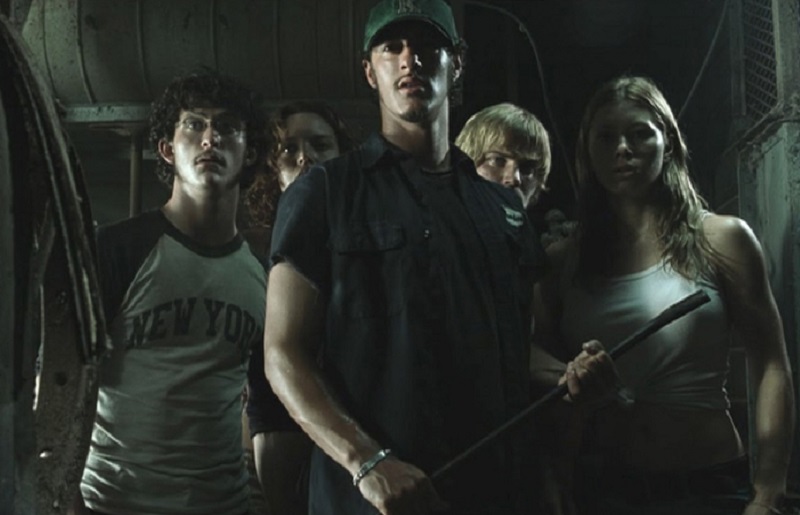Texas Chainsaw Massacre (2003) directed by Marcus Nispel. Image courtesy of New Line Cinema.
Universal’s decision to shelve The Hunt, a movie about snobby people hunting Donald Trump supporters, has touched off some heated conversations about censorship and the intrusion of political debates into the making of art. It has caused some people to reflect on the success of previous human hunting movies, and begs the question should The Purge have been made?
But the truth is, cinema has a long history with films about people brutalizing other people. It’s basically the foundation of the entire horror genre, no? The audience experiences the emotions of trauma and terror through the intermediating mechanism of the screen. Sometimes this is just gratuitous, shock-type violence, done to titillate and scandalize. Sometimes the violence has a higher meaning - it is meant to shock, to satirize or to illuminate something deeper embedded in our very society. The films of Sam Peckinpah were exhortations of stylized violence that sought to push the boundaries of what was socially acceptable in the medium at the time, while also underlining the violent foundations of our very own society.
One of the goriest examples was the 2003 remake of the classic horror flick The Texas Chainsaw Massacre. Based on real-life human taxidermist Ed Gein, the 2003 remake has all the classic trappings of the genre: a group of promiscuous and morally suspect teens journey into a rural area, only to be picked off one by one as a family of Ed Geins terrorize them. It is a classic and simple yet effective premise. The sole survivor is vintage era Jessica Biel. Why does she survive? Well presumably you need someone through which to focus the audience’s terror and horror at what they are seeing.
The movie is extremely gruesome, and involves scenes of implied cannibalism, people being hung on meat hooks and skin-suits. Is there any higher purpose or message embedded in this carnage? I don’t think so. The movie’s primary intention is to scare you and shock you, and it succeeds. It is skillfully done, with set pieces designed to slowly reveal the abject depravity of the Hewitt clan. The tension is gradually dialed up, but most importantly the film is very good are creating a pretty fully textured world. You feel like this incestuous, murderous clan of backwater Trump voters really exists - it does feel kind of like you are getting a glimpse of a hidden, nasty little world. And that is really what makes the terror and the tension and the horror real. Not the gruesome violence - but the skill with which this terrible world is built.
And as far as horror movies go, that is usually all they aspire to do. The really good ones will elevate themselves with added layers about society or a psychological dimension, but in the final analysis a good horror movies merely aspires to shock and scare you, and the Texas Chainsaw Massacre delivers on that promise.
So, what the movie too violent?
Of course not.
Besides, how can any movie with R. Lee Ermey be anything but a gem?
